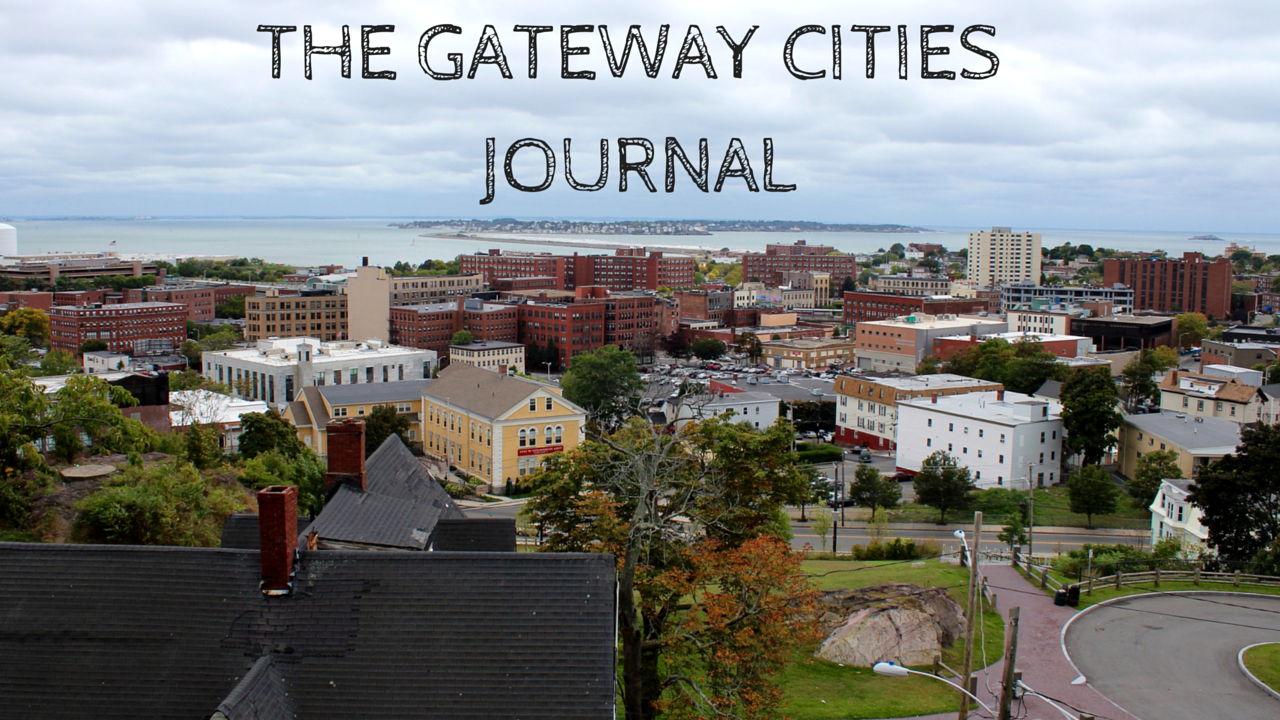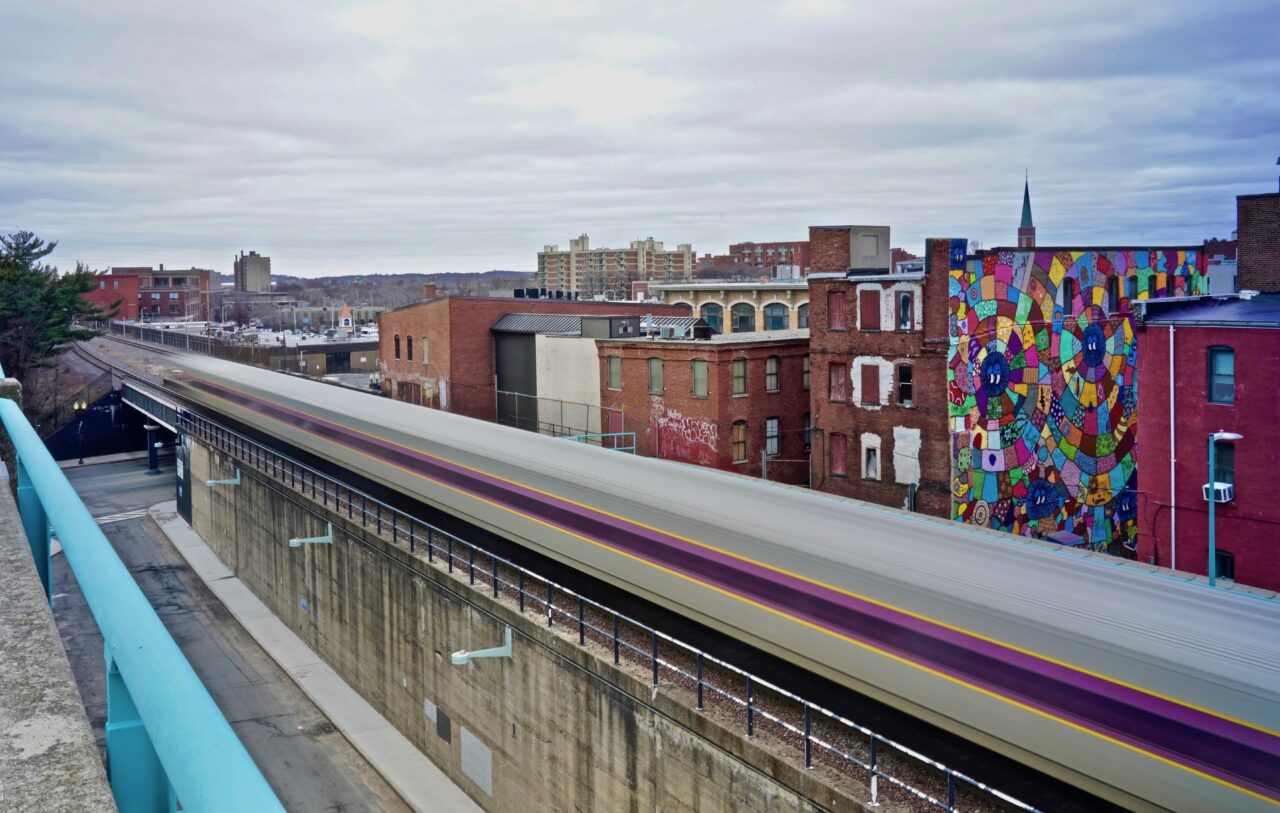
The past two weeks have been exciting ones for transportation in the Commonwealth. Our legislative leadership has primed the policy pump for the Commonwealth to make bold changes to our commuter rail system. House Speaker DeLeo and Senate President Spilka stated Tuesday that “all ideas are on the table” for how to fund necessary transportation improvements that fuel our state’s economic development. Late last year, a Governor’s commission issued a Future of Transportation report that called for the MBTA, MassDOT, and the RTAs to promote regional hubs so that our Gateway Cities could attract jobs and residents. The report also calls on everyone across to state to think broadly about transportation needs and to integrate those policies with economic development, housing, and land use policies that lead to equitable investment across the state-a strategy similar to our Transformative Transit-Oriented Development Initiative.
The rallying cry for fresh ideas to the business community and lawmaker support for diversifying funding streams to pay for transportation are steps in the right direction. In a Tuesday morning presentation to the Lynn Chamber of Commerce, FMCB Chair Jim Aiello discussed how the system was built for white men working 9-5 in their professional bubbles during the 1950s and ’60s. It seems that we’ve made little progress in the service models or technologies since. The Rail Vision team, a working group of MassDOT and the MBTA, hosted a public meeting on March 5 that rolled out seven proposed scenarios that breathe new life into our dated commuter rail system.
The bi-directional service improvements alone better accommodate the changes to how we live, work, learn, and play during the last 70 years. Rail Vision sparks discussions about the potential and promise of a rail system that fuels transformative development statewide. We have an excellent opportunity for Gateway City leaders and advocates to help President Spilka in her focus on “bringing the right people to the table to get things done.” Getting involved now will help policymakers, businesses, advocates, and regulators follow the Commission’s recommendations to distribute jobs, housing, and technology resources as widely across the state as possible. So, take a look at the Rail Vision scenarios online at www.MBTARailVision.com. And take the survey at www.MBTARailVisionSurvey.com (available until March 29).
MassINC also needs your fresh ideas to diversify revenue sources and reinvigorate the state’s investment in Gateway Cities. Join us for one of our Transformative Transit-Oriented Development (TTOD) Regional Forums in regions across the state. Two forums have already been planned: New Bedford on April 8 for South Mass. and Fitchburg on April 10 for Central Mass. Forums for communities in the North, North Shore, and Western parts of the state are underway. Stay tuned for an invite or keep an eye on our events page. More information about the forums is listed below.
Housing & Economic Development
Brockton is named one of the most affordable cities to live in Massachusetts.
Sixty luxury condos are proposed on the Haverhill riverfront.
In a Boston Globe opinion piece, Jeff Bussgang and Wendy Estrella write about how teamwork makes Lawrence a city on the move.
Lowell solicits creative proposals to redevelop its historic but long vacant Smith-Baker Center.
The VP of Parallel Products recycling facility discusses its plans for a major new facility in New Bedford.
Salem hosts a community forum to evaluate rising housing costs and highlight new efforts to remain an inclusive city.
The employment rate of residents at Worcester’s two largest public housing projects jumped from 39 percent in 2014 to 62 percent this year, which officials say is evidence that their self-sufficiency programs work.
CityLab finds the secret ingredient of the country’s most economically resilient cities is state and local investment in cultural cohesion and preservation.
Governing questions if Opportunity Zones can actually benefit distressed communities as they are designed to.
MIT Media Lab’s new “Atlas of Inequality” demonstrates the pervasive impacts of segregation across the Commonwealth, noting its impact on not only housing but vocation.
Education
The Director of New Bedford’s public libraries talks about re-envisioning the role of libraries in the city, aiming to innovate and address the city’s changing needs.
Salem State leads the pack in addressing the national crisis of student homelessness and financial insecurity by opening a healthy food pantry for its students in need.
Project LEARN convenes a public forum to discuss the selection of the next school superintendent.
The Massachusetts College of Liberal Arts announces its expansion in Pittsfield.
A report issued by the group Education Reform Now Advocacy says Lawrence schools are outperforming Boston‘s, even though Boston spends 36 percent more per pupil.
Transportation
Lynn Mayor Thomas McGee and Bedford Town Manager Sarah Stanton are named the first chairs of the Commuter Rail Communities Coalition.
Residents assemble at a YMCA in Lynn to discuss the future of public transportation in the city.
The MBTA oversight board approves a controversial fare hike, which Worcester’s state reps were quick to sharply criticize.
CityLab responds to concern over the sharp rise in pedestrian fatalities across the country.
Creative Placemaking
Fall River officials begin to plan for the future of the legendary Bank Street Armory, considering a future for it as a theater or a hotel.
A reimagining of the Lynn waterfront could feature parks and improved public access, according to newly-released plans.
An artist and fisherman in New Bedford discusses his most recent murals and the broader role of public art in the city.
The Telegram walks through a history of Worcester’s downtown storefronts.
Governance, etc.
The embattled Mayor of Fall River, Jasiel Correia II, is voted to be recalled in a special election, but simultaneously wins his own re-election.
The City of Fitchburg moves forward with reviving its historic dam, conducting a study on the environmental impact of repairing it.
Rep. Richie Neal calls for Springfield to be exempted from Trump’s tariffs, citing the necessity of keeping jobs in the region.
Worcester’sresponse against a hepatitis outbreak is praised by WBUR and considered to be the gold standard of communities fighting epidemics.
Governing notes the role that localities and municipalities have had in addressing climate change, forging a “Green New Deal” of their own.
Communities & People
Recently named a “World Master Chef” (one of the culinary industry’s highest honors), George Karousos teaches and cooks up scallops at a new restaurant in New Bedford.
